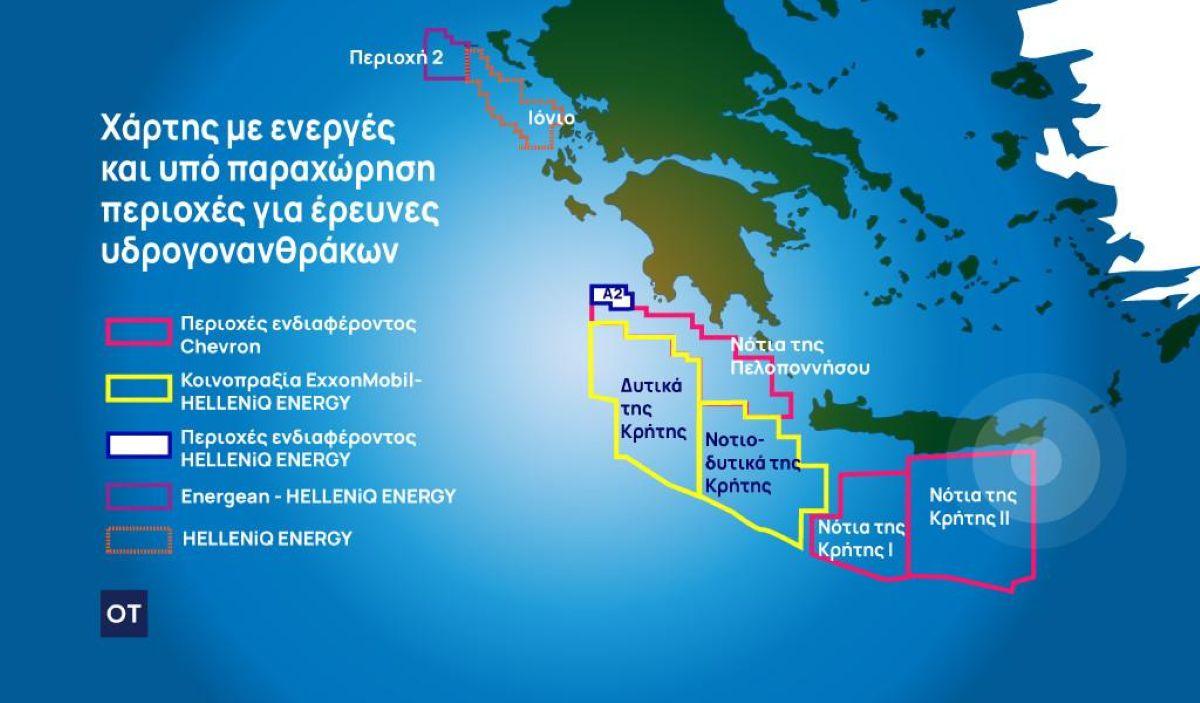Increasing the contribution of industry to 13% of GDP within five years and to 15% in 2030 compared to 10.7% today is one of the main goals of the National Strategy for Industry.
According to a PwC announcement, the plan, in which the company also participated, includes an increase in industrial exports as a percentage of GDP to 15% within five years and to 20% by 2030 compared to 9.2% today
There is also a plan to increase the percentage of employees to 12% of the total over a five-year horizon and to 14% by 2030 compared to 8.2% today
The goal is to rise to 17th place in the European Innovation Index within five years and to 15th by 2030 from 20th place today.
According to the announcement of the company “PWC Greece, utilizing its domestic and international experience, developed the new National Strategy for Industry. In collaboration with Secretariat for Industry and all the involved units of the co-competent Ministries, the proposal of the National Strategy was designed, which was presented to the Government Committee of Industry on Tuesday 22-3-2022.”
Minister Adonis Georgiadis during the meeting of the Government Committee on Industry pointed out that “the National Strategy for Industry will be the main tool of industrial policy of our country for the next decade.” At the same time, he stressed the need to achieve the energy autonomy of Greek industry while emphasizing that the implementation of the objectives of the National Strategy contributes to strengthening the resilience of domestic industry, being the main pillar in the new era of Greek economy and social prosperity.
The General Secretary of Industry, Themis Eftychidou, stressed that this is the first substantial effort to formulate an Industry Strategy which is accompanied by an Action Plan with practical implementation and proposals of an emblematic nature that will significantly enhance the growth potential of the domestic industry.
The project
This project is implemented by the General Secretariat for Industry in collaboration with the Directorate General for Structural Reform Support (DG REFORM) which supports European states to plan and implement reforms as part of their efforts to support job creation and sustainable development .
The vision of the National Strategy is for the industry to gain a leading role in the transformation of the productive model of the country, investing in innovation, developing partnerships and upgrading the skills of human resources. The aim is to attract investments in modern productive activities, capable of participating in international value chains and securing modern and competitive products. In this way, the domestic industry is called upon to create, added value, sustainable and durable, without exclusions and for the benefit of Greek society.
According to the announcement of the company, as the contractor of the project, the role of PwC is crucial due to its experience from similar projects in Greece and abroad as well as its excellent cooperation with the productive bodies of the country. PwC ensures the building of trust between all stakeholders and contributes to sustainable development through the proposed Strategy, in a demanding socio-political environment. After all, this is a central strategic goal for PwC.
Mr. Leonidas Papaioannou, Managing Director of PwC Greece emphasizes: “In an ever-changing environment, the role of a resilient and sustainable industry is a key factor in the new equation that is taking shape. The 4th Industrial Revolution, geopolitical changes and the need to upgrade the skills of the workforce lead to the transformation of the production model. As contractors of this project, we seek the new strategy to be based on a realistic action plan which will be a point of reference for all involved, the state, the market and society.”
The 4 building blocks
The National Strategy for Industry is composed, equally, of four building blocks:
-The industrial ecosystems that are the pillars of Greek Industry and include all the organizations that are active at any stage of an industrial value chain.
-Specialized markets that are segments with significant growth potential, competitive advantage and high added value.
-The industrial base / industrial organization covering horizontal issues concerning industrial SMEs and bio-support and representation structures of engineering companies.
-The support structures and services that concern a series of factors that compose the business environment, the market and the society in which the industry operates.
The 153 business objectives
The National Strategy incorporates 153 operational objectives, which are linked to the strategic directions, while it also includes specific quantitative objectives that are milestones for successful implementation:
● increase the contribution of industry as a percentage of GDP to 13% within five years and to 15% in 2030 compared to 10.7% today
● increase in exports of industrial products as a percentage of GDP to 15% within five years and to 20% by 2030 compared to 9.2% today
● increase in the percentage of employees to 12% of the total over a five-year horizon and to 14% by 2030 compared to 8.2% today
● rise to 17th place in the European Innovation Index within five years and to 15th by 2030 from 20th today.
Finally, the business objectives are part of the National Industry Strategy and cover increasing competitiveness, innovation, digital and green transformation, human resource support and skills development, improving the business environment and ensuring its resilience. industry.







![Βούτυρο: Τι δείχνει το χρηματιστήριο τιμών – Γιατί παίρνουν… φωτιά τα κρουασάν [γραφήματα]](https://www.ot.gr/wp-content/uploads/2025/07/kroyasan-1024x683-1-300x300.jpg)





![Δασμοί: Οι εμπορικές συνομιλίες ΕΕ-ΗΠΑ για τους δασμούς στα αυτοκίνητα [γραφήματα]](https://www.ot.gr/wp-content/uploads/2025/07/tofas.jpg)

![Τεχνητή νοημοσύνη: Η ζήτηση ενέργειας αυξάνει τις εκπομπές CO2 [γράφημα]](https://www.ot.gr/wp-content/uploads/2025/02/data-center.jpg)
![Χρυσές λίρες: Πουλάνε μαζικά οι Έλληνες το εξάμηνο του 2025 [γράφημα]](https://www.ot.gr/wp-content/uploads/2025/07/photo_2025-07-04_13-01-06.jpg)











![Βούτυρο: Τι δείχνει το χρηματιστήριο τιμών – Γιατί παίρνουν… φωτιά τα κρουασάν [γραφήματα]](https://www.ot.gr/wp-content/uploads/2025/07/kroyasan-1024x683-1.jpg)


![Εκατομμυριούχοι: Η μεγαλύτερη μετακίνηση πλούτου στην ιστορία το 2025 [γράφημα]](https://www.ot.gr/wp-content/uploads/2024/04/money-2048x1366-1.jpeg)

![Τραμπ: Διοργανώνει σύνοδο κορυφής ΗΠΑ και πέντε αφρικανικών χωρών [γράφημα]](https://www.ot.gr/wp-content/uploads/2025/06/trump-maga-scaled.jpg)




